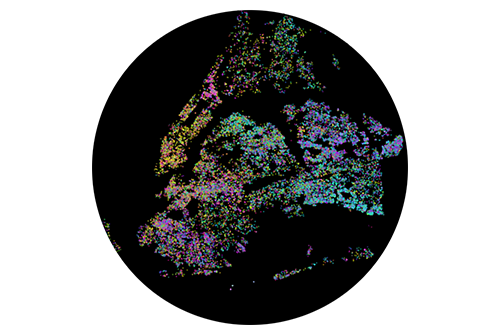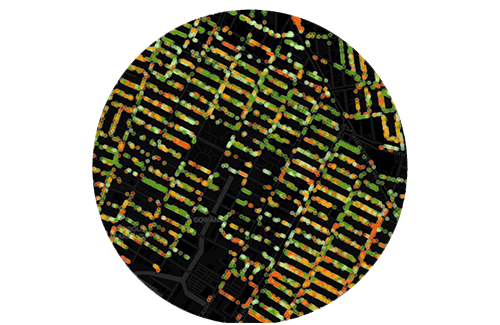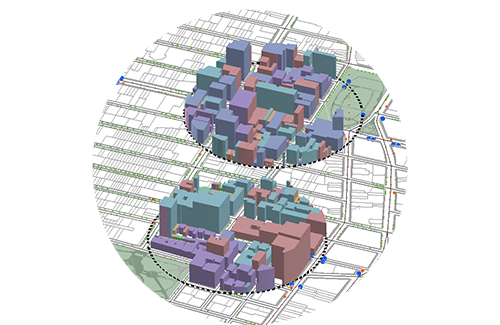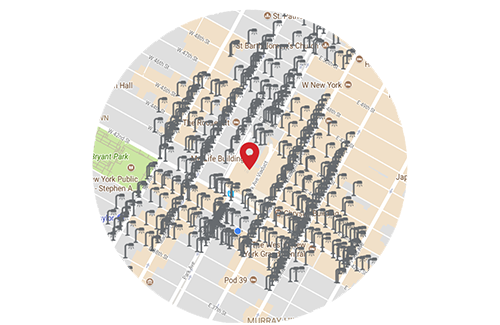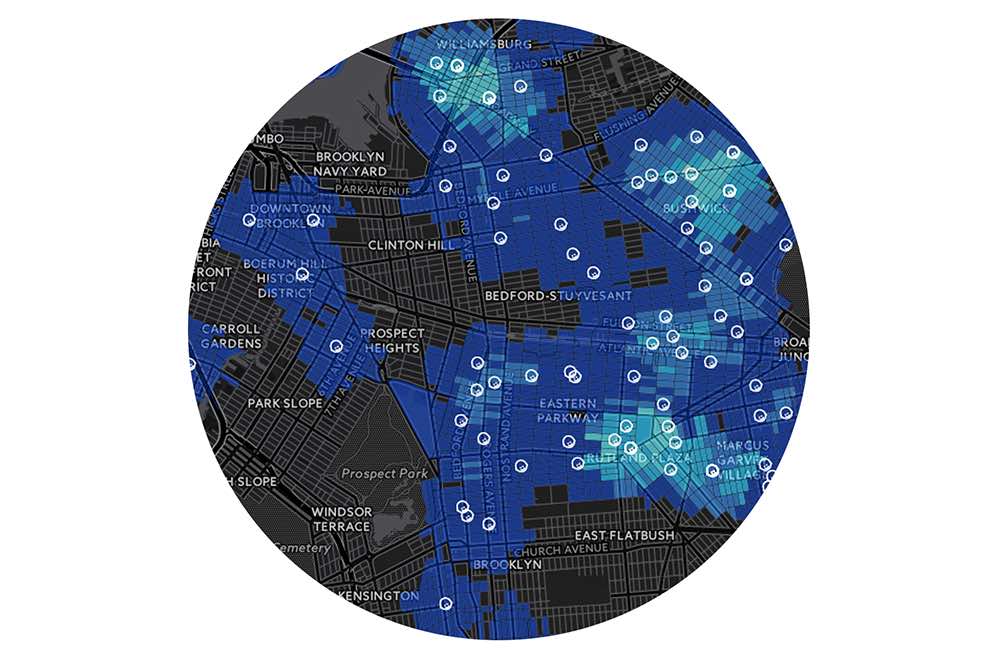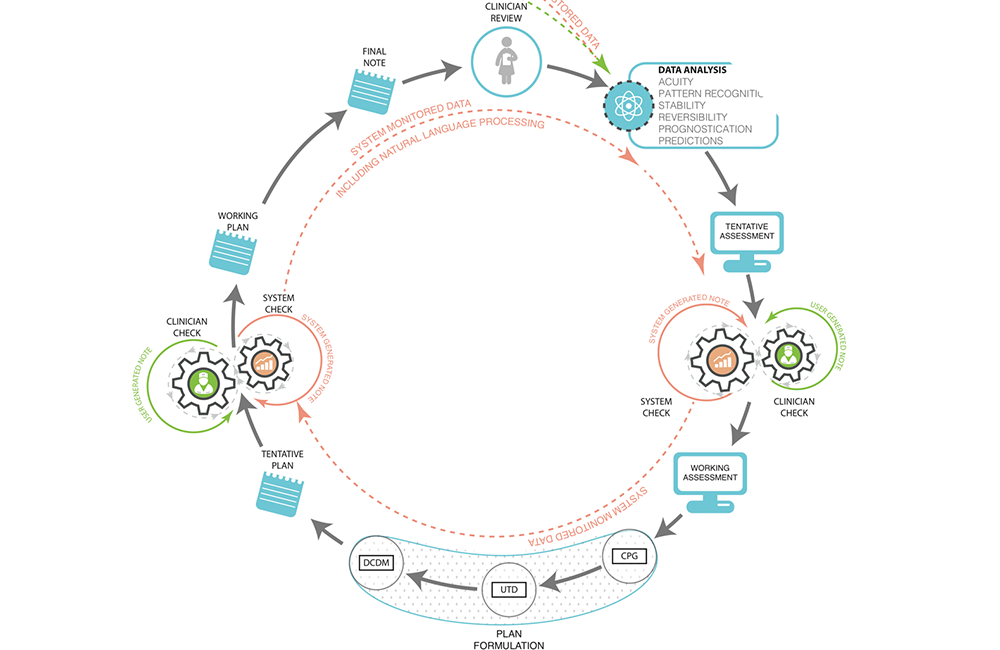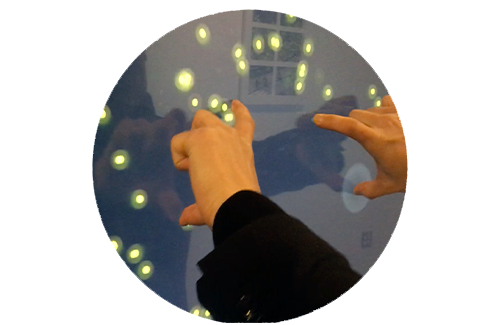研究
团队
来源, 博士, 清华大学建筑学院副教授/特别研究员、博士生导师,未来城市智能工作室创建人,自然资源部“智慧人居环境与空间规划治理技术创新中心”特聘研究员、副秘书长,中国城市科学研究会数字孪生与未来城市专委会委员,中国城市规划学会规划实施分会青年委员。研究关注城市信息学与城市规划设计的交叉领域,旨在结合计算机科学与规划设计方法以解决城市复杂问题。成果发表于多个国际研究期刊、会议演讲与媒体报道,包括联合国、彭博科技、纽约多媒体实验室、美国规划师协会、美国土木工程师协会、公共政策分析与管理协会、城市设计论坛等。主持和参与国家自然科学基金(NSFC)项目、科技部“十四五”国家重点研发计划、美国国家科学基金会(NSF) 项目等科研课题。
来源曾担任麻省理工学院(MIT)城市研究与规划系(DUSP)城市科学讲师,负责“城市科学与计算机科学”专业课程与教育创新,同时是MIT新工程教育转型计划"数字城市"方向负责人之一。曾担任纽约大学城市管理研究所(NYU Marron Institute of Urban Management) 和城市科学与发展中心 (NYU Center for Urban Science and Progress) 研究助理,开展基于机器学习的城市环境和人居健康分析、城市舆情感知、传感网络监测、城市活动数据分析等研究。在设计领域,来源曾于波士顿萨夫迪建筑设计事务所(Safdie Architects)担任城市设计师,参与了全球多个大型城市与建筑设计项目。来源于纽约大学获得工程学博士(城市信息学方向)、城市科学与信息学理学硕士、城市规划工学硕士以及风景园林学士学位。(清华介绍网页 | 领英 | 谷歌学术)
来源曾担任麻省理工学院(MIT)城市研究与规划系(DUSP)城市科学讲师,负责“城市科学与计算机科学”专业课程与教育创新,同时是MIT新工程教育转型计划"数字城市"方向负责人之一。曾担任纽约大学城市管理研究所(NYU Marron Institute of Urban Management) 和城市科学与发展中心 (NYU Center for Urban Science and Progress) 研究助理,开展基于机器学习的城市环境和人居健康分析、城市舆情感知、传感网络监测、城市活动数据分析等研究。在设计领域,来源曾于波士顿萨夫迪建筑设计事务所(Safdie Architects)担任城市设计师,参与了全球多个大型城市与建筑设计项目。来源于纽约大学获得工程学博士(城市信息学方向)、城市科学与信息学理学硕士、城市规划工学硕士以及风景园林学士学位。(清华介绍网页 | 领英 | 谷歌学术)

马明仪 | 博士生
智慧城市|城市大数据|数据科学
庄博凯 | 硕士生
城市管理|智慧城市与社区
夏静怡 | 硕士生
城市健康|行为模式|智联社区
王佳丽 | 硕士生
城市规划|智慧城市|数据科学
榎本洪锐 | 硕士生
城市规划|空间分析|环境科学
往届成员:
张嘉宸 (数据科学|城市计算)
严澜 (智慧城市|城市交通|数字经济自动化)
陈思融 (城市管理|智慧城市与社区)
孙广泽 (城市规划|城市分析|城市感知)
刘伊丰 (空间分析|城市设计|数字化叙事)
课程
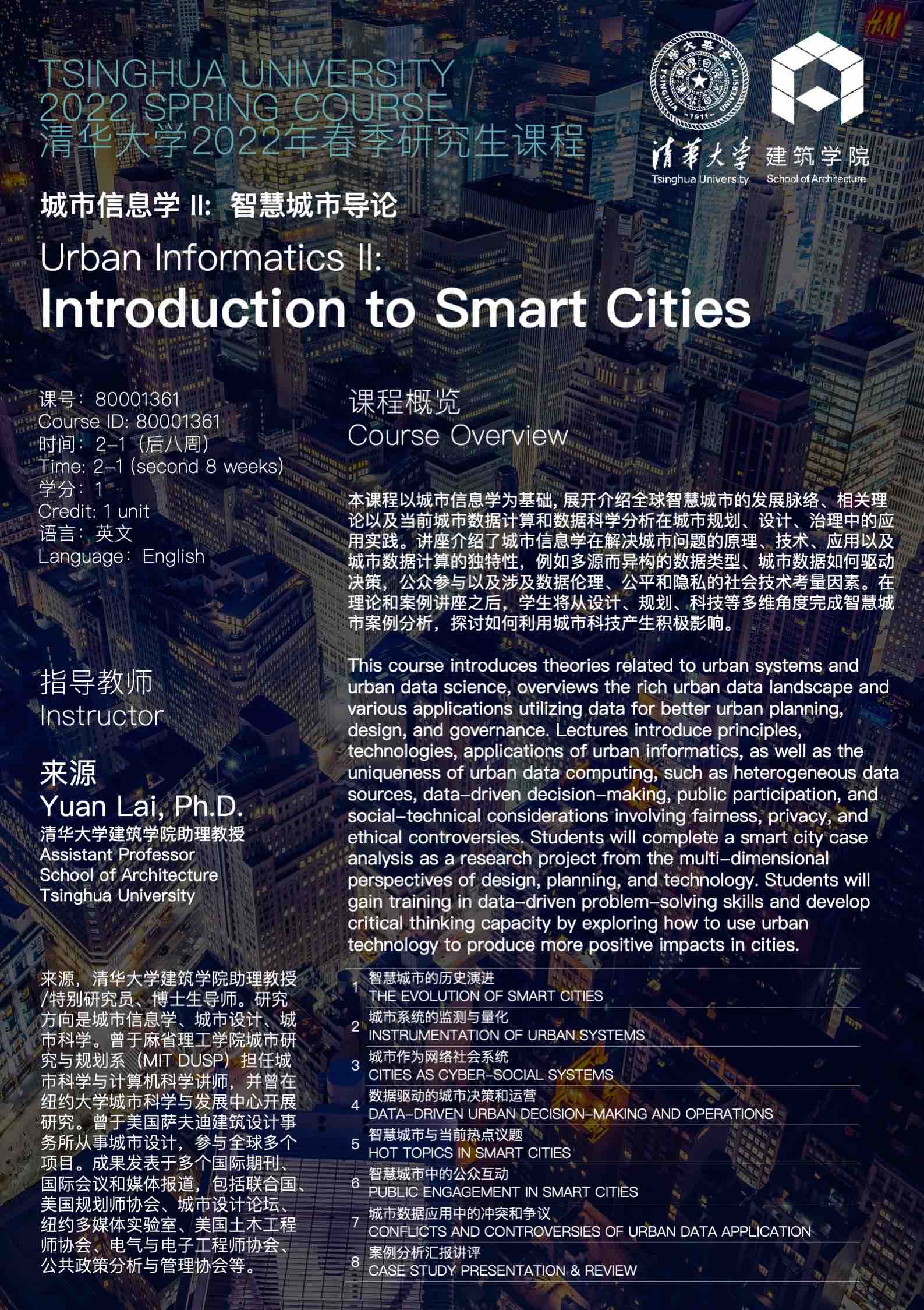
城市信息学II:
智慧城市导论
2023 春季 清华大学
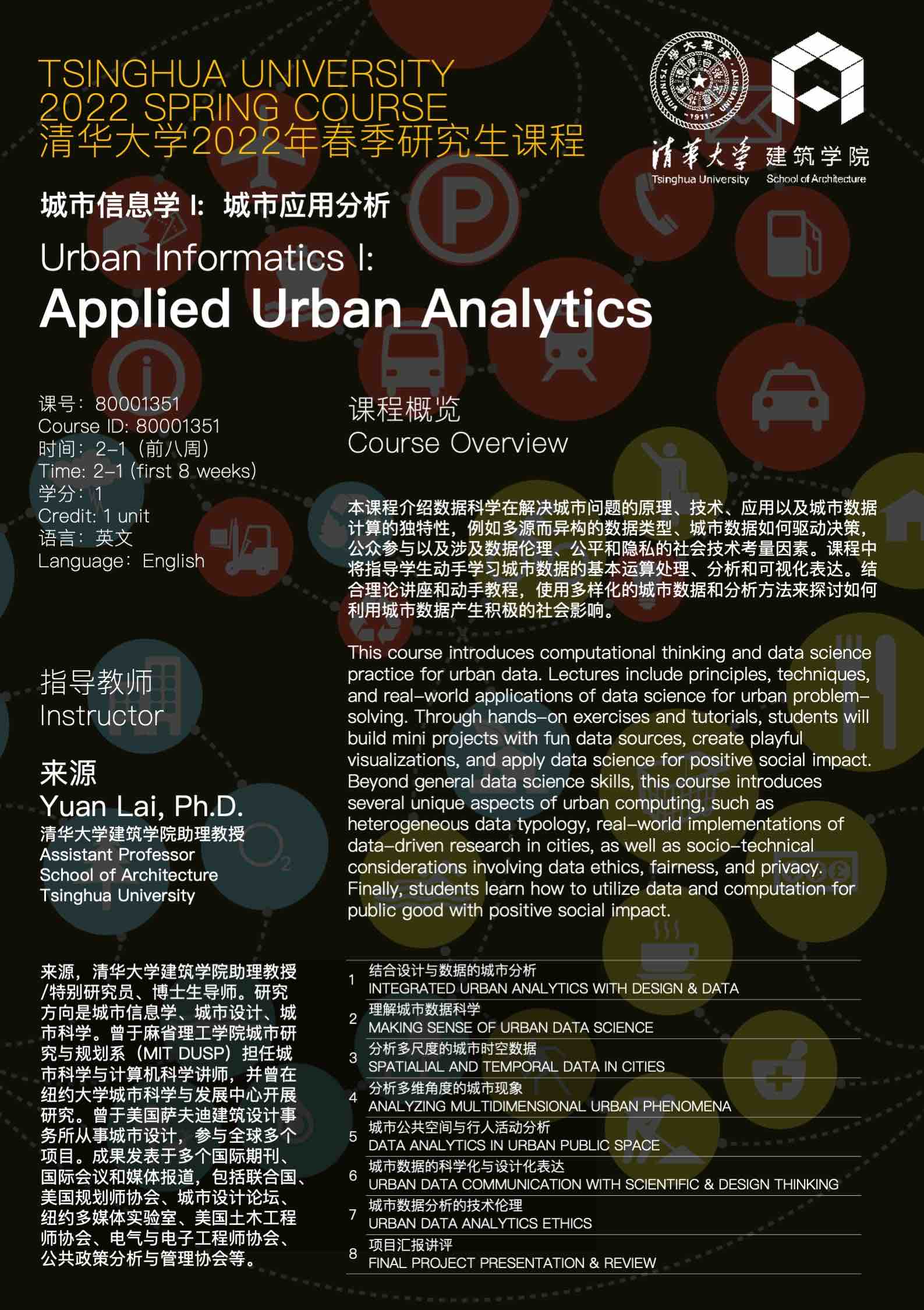
城市信息学I:
应用城市分析
2022 春季 清华大学
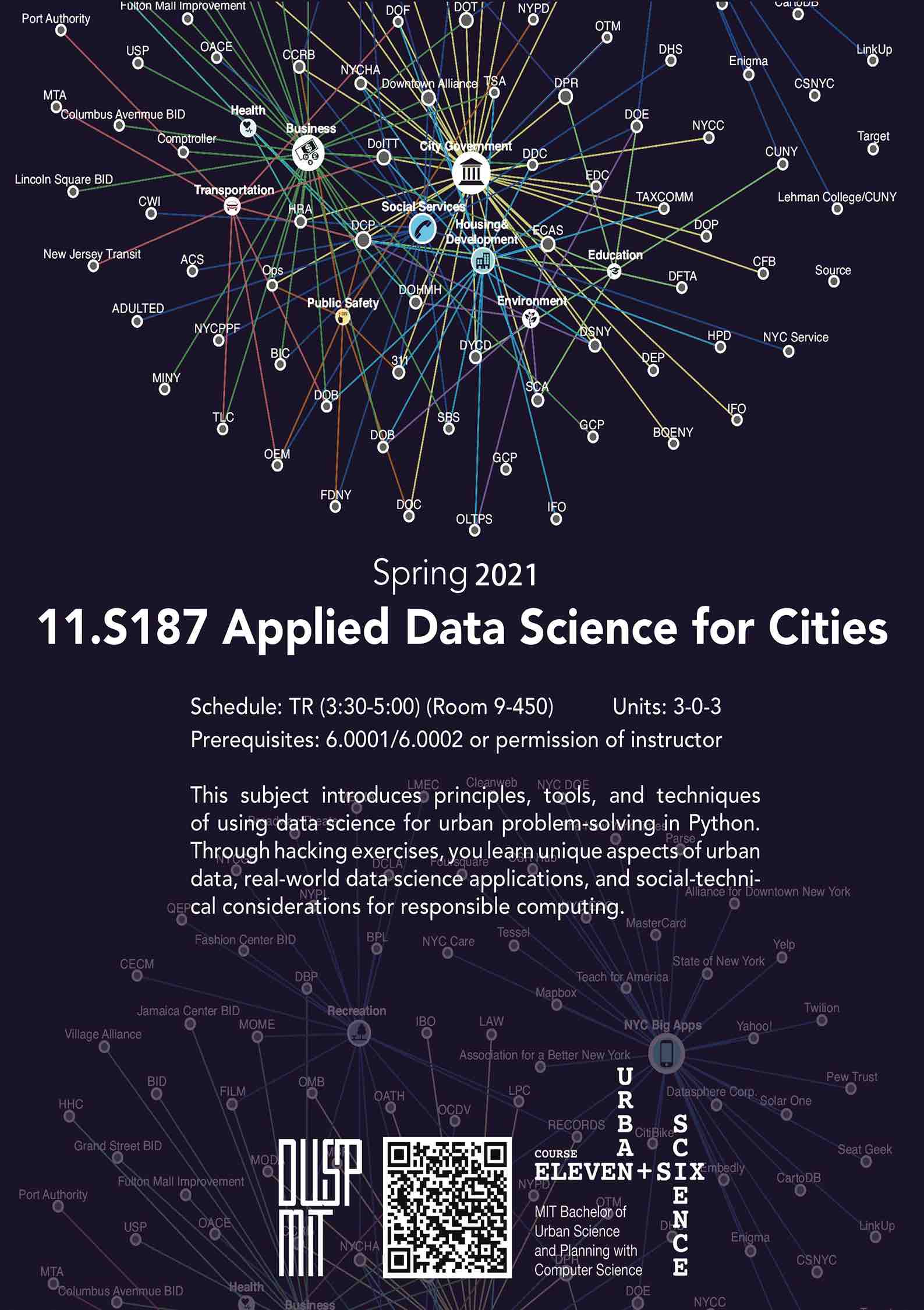
城市应用数据科学
2021 春季 麻省理工学院
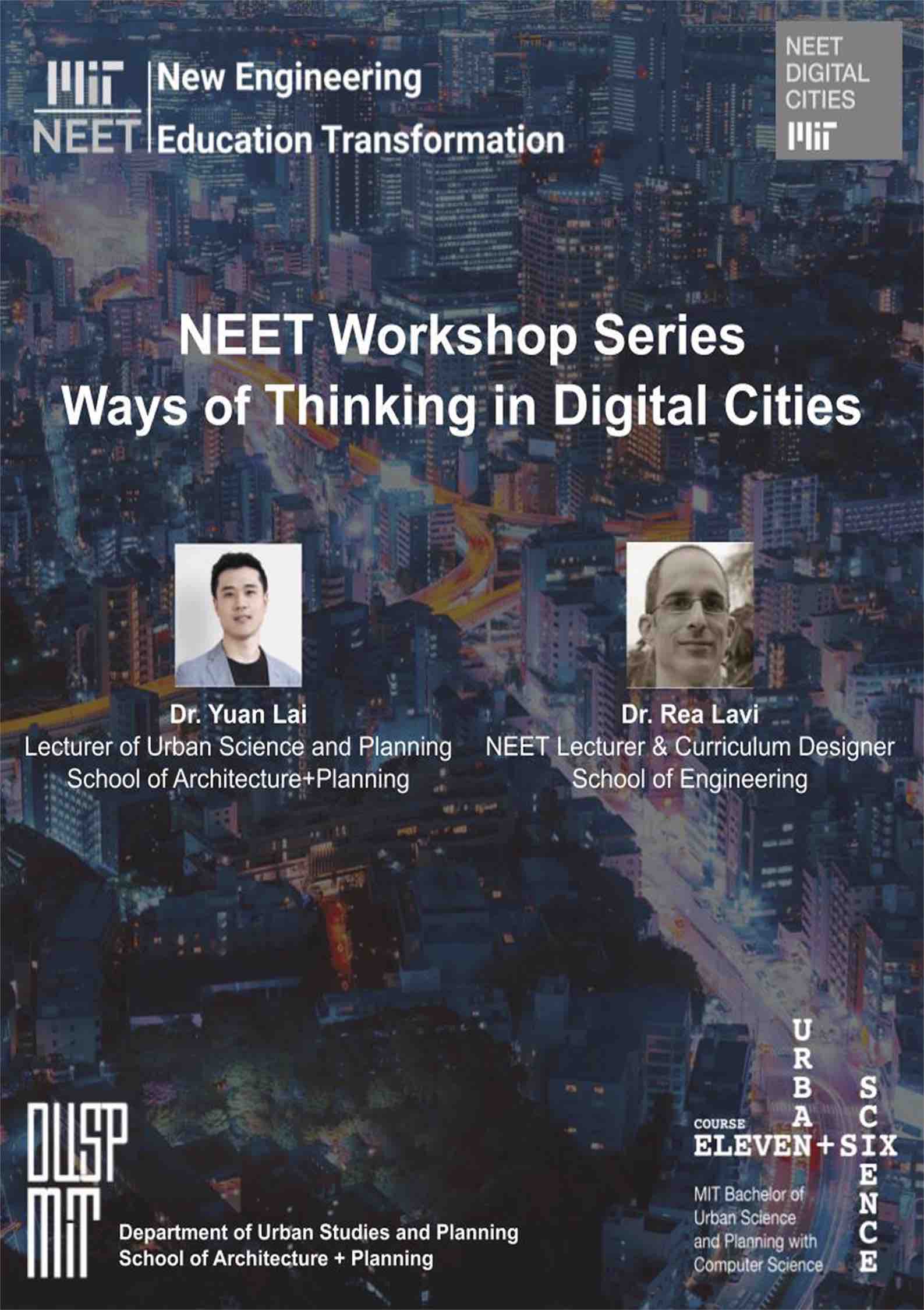
新工科教育转型
数字城市
2020 秋季 麻省理工学院
论著
【学术期刊论文】
利用大语言模型与可解释人工智能解读市民投诉数据用于社区呼吸健康预测Zhao, H., Hu, J., Yang, M. & Lai, Y.* Leveraging LLMs and explainable AI to decode citizen complaints for neighborhood respiratory health prediction. Health & Place 97, 103606 (2026). https://doi.org/10.1007/s44212-025-00092-w
使用多模态大语言模型的社区健康零概率预测
Zhao, H., Lai, Y. Zero-shot prediction of neighborhood health using multimodal large language models. Urban Informatics 4, 23 (2025). https://doi.org/10.1007/s44212-025-00092-w
中美智慧城市科学研究趋势比较分析
Lai, Y.*, Zhao, H. (2025). Comparative analysis of smart city scientific research trends in the USA and China. Nature Cities, https://doi.org/10.1038/s44284-025-00305-y
多模态大语言模型融合多视图识别街道多活动潜力与网络
Li, J.T., Ma, M.Y. & Lai, Y.* (2025). Identifying street multi-activity potential (SMAP) and local networks with MLLMs and multi-view graph clustering. Computers, Environment and Urban Systems, 2025, 122, 102350.
胡安妮,马明仪,李佳彤,来源*。 生成式智能赋能柔性城市[J]. 北京规划建设,2025(04):179-185.
融合社会感知与生成式人工智能揭示街区便利设施与游客感知之间的关联
Ma, MY.; Hu, A.; Enomoto, K.; Zhou, Y. & Lai, Y. Revealing the Amenity-Perception Connection: Integrating Social Sensing with Generative AI. Environment and Planning B: Urban Analytics and City Science. 2025.
基于居民跑步活动标准分数(RAZ)的城市空间热韧性指标构建
Zhou, L.; Lai, Y. Urban Spatial Heat Resilience Indicator Based on Running Activity Z-Score. Urban Science. 2025, 9, 34.
夏静怡, 庄博凯, 来源. 未来城市智能技术促进多领域协同效益研究[J]. 城市与区域规划研究, 2024, 16(1): 15-29.
城市碳排放与活力维度下的发展战略——以北京为例的多源数据驱动分析方法
Xia, J., Wang, J., & Lai, Y. (2024). Development strategy based on combination typologies of building carbon emissions and urban vibrancy—A multi-sourced data-driven approach in Beijing, China. Land, 13(7), 1062.
中国老龄友好型智慧社区发展的数据驱动洞察:以北京为例的案例研究
Chuang, P., & Lai, Y. (2024). Data-driven insights into age-friendly smart community development in China: A case study of Beijing. Journal of Chinese Architecture and Urbanism, 1754.
利用机器学习预测气候敏感极端天气事件的健康风险:一项范围综述
Ssebyala, S. N., Kintu, T. M., Muganzi, D. J., Dresser, C., Demetres, M. R., Lai, Y., ... & Ghosh, A. K. (2024). Use of machine learning tools to predict health risks from climate-sensitive extreme weather events: A scoping review. PLOS Climate, 3(1), e0000338.
室外慢跑活动模式与对公共卫生管理措施的适应行为分析
LIU, Y., & LAI, Y.* (2023). Analyzing jogging activity patterns and adaptation to public health regulation. Environment and Planning B: Urban Analytics and City Science, 23998083231193484.
Lai, Y.*, & Lavi, R. (2023). Remote Teaching for Collaboration and Creative Problem-Solving Skills in Undergraduate Urban Science: A Case Study. Journal of Education Studies, 51(4), EDUCU5104001-18.
来源*, 郑筱津, 夏静怡. 城市系统视角的智慧人居理论与技术规划原则[J]. 城市规划, 2023(47):12.
来源, 胡安妮. 基于人居活动数据的城市分析——纽约市实践经验及其城市人因工程学启示[J]. 世界建筑, 2023, 7(397): 10-16. Lai, Y. & Anni H. (2023) Urban Analytics based on Human ActiVity Data: Practical Experience of New York City and Insights in Urban Ergonomics. World Architecture, 7(397), 10-16. (in Chinese)
来源, 唐燕, 安珺, 等. 城市商圈周边的老旧住区“内生长”更 新路径:以南京新街口为例[J]. 城市设计, 2023(3): 88-97. LAI Y, TANG Y, AN J, et al. Regeneration paths based on endogenous development for old residential neighborhood adjacent to urban shopping district: A design proposal in Xinjiekou, Nanjing [J]. Urban Design, 2023(3): 88-97.
实现数据共享要求:避免“仅表面开放的数据”
Watson H, Gallifant J, Lai Y, et al. Delivering on NIH data sharing requirements: avoiding Open Data in Appearance Only. BMJ Health Care Inform 2023;30:e100771. doi:10.1136/bmjhci-2023-100771
来源, 李佳彤. 基于居民活动的多尺度城市健康数据融合分析[J].西部人居环境学刊,2023,38(02):8-16.DOI:10.13791/j.cnki.hsfwest.20230202.
LAI Y, LI J T. Integrated Multi-scale Urban Health Data Analytics Based on Residents’ Activities[J]. Journal of Human Settlements in West China, 2023, 38(2): 8-16.
自然资源部智慧人居环境与空间规划治理技术创新中心团队. 智慧人居环境规划治理的研究方向与应用展望[J]. 城市规划,2023,47(4):4-11.
来源, 庄博凯. 人民城市理念下的智慧城市规划价值导向思考[J]. 北京规划建设,2023(02):20-24.
城市活力能促进积极生活吗? 北京城市局部活力、跑步运动与房地产价格分析 | 2022 |《国际环境研究和公共健康》
Lai Y. ; Li, J.; Zhang, J.; Yan, L.; Liu, Y. (2022). Do Vibrant Places Promote Active Living? Analyzing Local Vibrancy, Running Activity, and Real Estate Prices in Beijing. Int. J. Environ. Res. Public Health, 19, 16382.
城市智能用于碳中和城市:数据、分析与气候行动的协同 | 2022 | 《可持续》
Lai Y. (2022). Urban Intelligence for Carbon Neutral Cities: Creating Synergy among Data, Analytics, and Climate Actions. Sustainability, 14(12), 7286.
估算建筑改造能源效率投资中的最低预期回报率和风险套利 | 2022 | 《应用能源》
Lai Y. Papadopoulos S., Fuerst F., Pivo G., Sagi G., and Kontokosta C. 2022. Building Energy Retrofit Hurdle Rates and Risk Arbitrage in Energy Efficiency Investments. Applied Energy, 306, p.118048.
唐燕, 来源, 孙叶, 等. 公有引力:公共空间营造带动社区更 新:以南京新街口片区为例[J]. 城市设计, 2022(2): 82-91. Tang Y, Lai Y, Sun Y et al. The Communal gravity: Public space creation drives community regeneration: Taking Nanjing Xinjiekou District as an example[J]. Urban Design, 2022(2): 82-91.
城市智能与星球健康 | 2021 | 《地球》
Lai Y. 2021. Urban intelligence for planetary health. Earth, 2(4): 972-979.
使用大数据和社交媒体了解社区状况 | 2021 |《城市规划教育与研究》
Kontokosta, C. E., Lance F., Lai Y. 2021. Up-and-coming or down-and-out? Social media popularity as an indicator of neighborhood change.Journal of Planning Education and Research. 1-12.
关于绿色基础设施的城市信息学:整合街道树木数据收集分析和公众科学参与的综合方法 | 2021 |《风景园林》
Lai, Yuan 2021. "Urban informatics for green infrastructure: An integrated approach for street trees data collection, analytics, and citizen science. " Landscape Architecture. vol.28(1): 17-30.
利用无监督机器学习对县级新冠疫情相关数据的分类学研究 | 2020 | 《智能医疗》
Lai, Yuan, Marie-Laure Charpignon, Leo A. Celi. 2020. "Unsupervised learning for county-level typological classification for COVID-19 research" Intelligence-Based Medicine. vol. 1-2.
新冠数据分析竞赛:无国界数据共抗全球疫病大流行 | 2020 |《英国医学杂志BMJ Innovations》(作者排名不分先后)
Eva M. Luo, Sarah Newman, Maelys Amat, Marie-Laure Charpignon, Erin R Duralde, Shrey Jain, Aaron R Kaufman, Igor Korolev, Yuan Lai, Barbara D Lam, Megan Lipcsey, Alfonso Martinez, Oren J Mechanic, Jack Mlabasati, Liam G McCoy, Freddy T Nguyen, Matthew Samuel, Eric Yang, Leo A. Celi. 2020. "MIT COVID-19 Datathon: data without boundaries" BMJ Innovations.0:1–4
城市智能应对疫病流行 | 2020 | 《JMIR 公共健康与监测》
Lai, Yuan, Wesley Yeung, and Leo A. Celi. 2020. "Urban intelligence for pandemic response: Viewpoint" JMIR Public Health & Surveillance.
自然语言处理话题模型发现城市建筑改造和适应性再利用活动的时空特征 | 2019 |《计算机,环境与城市系统》
Lai, Yuan and Constantine E. Kontokosta. 2019. "Topic modeling to discover the thematic structure and spatial-temporal patterns of building renovation and adaptive reuse in cities." Computers, Environment, and Urban Systems vol.78.
城市街道树种对空气质量和呼吸系统疾病的影响:大规模高分辨率城市数据的空间分析 | 2019 |《城市健康杂志》
Lai, Yuan and Constantine E. Kontokosta. 2019. "The impact of urban street tree species on air quality and respiratory illness: A spatial analysis of large-scale, high-resolution urban data," Health and Place, Vol. 56, 2019.
量化城市:分析高密度城市环境中行人活动因素 | 2018 |《景观与城市规划》
Lai, Yuan and Constantine E. Kontokosta. 2018. "Quantifying place: Analyzing the drivers of pedestrian activity in dense urban environment," Landscape and Urban Planning, Vol. 180.
数据时代下的医疗数据与决策分析 | 2015 |《医疗数据信息学》
Celi, Leo A., Jeggery D. Marshall, Yuan Lai and David J. Stone. 2015. "Disrupting electronic health records systems: The next generation," Journal of Medical Informatics 3(4):e34.
利用GPS与加速度计分析青少年活动范围 | 2013 |《城市研究》
Yin, Li, Samina Raja, Xiao Li, Yuan Lai, Leonard Epstein, and James Roemmich. 2013. "Neighborhood for playing: Using GPS, GIS, and accelerometry to delineate areas within which youth are physically active," Urban Studies 2013; 1(18).
【国际会议论文】
计算数据缺失的非正式城市环境的场所与人口活动| 2022 | 第七届电气工程师学会(IEEE)普适计算智能城市系统国际研讨会Lai, Yuan and Yifeng Liu. 2022. Computing Places and Human Activity in Data-absent Informal Urban Settlements. In 2022 IEEE International Conference on Pervasive Computing and Communications Workshops and other Affiliated Events (PerCom Workshops) (pp. 478-483). IEEE.
利用无监督机器学习方法评估纽约市邮政编码分区的新冠疫情影响 | 2020 | 机器学习国际会议
Khmaissia, Fadoua, Pegah Sagheb Haghighi, Aarthe Jayaprakash, Zhenwei Wu, Sokratis Papadopoulos, Yuan Lai, and Freddy T Nguyen. 2020. "An unsupervised machine learning approach to assess the ZIP code level impact of COVID-19 in NYC," Proceedings of the 2020 International Conference on Machine Learning.
城市公开数据集成的超高清情境意识 | 2020 | 第五届电气工程师学会(IEEE)普适计算智能城市系统国际研讨会
Lai, Yuan. 2019. "Hyper-local urban contextual awareness through open data integration." 18th IEEE International Conference on Pervasive Computing and Communications, Austin, TX.
城市碳排放动态时空模型:数据驱动下城市气候变化应对策略 | 2018 | 彭博数据科学年会
Kontokosta, Constantine E., Yuan Lai, Bartosz Bonczak, Sokratis Papadopoulos, Boyeong Hong, Awais Malik, and Nicholas Johnson. 2018. "A dynamic spatial-temporal model of urban carbon emissions for data-driven climate action by cities," Proceedings of the Bloomberg Data for Good Exchange, New York, NY.
高空间分辨率行人活动驱动因素分析 | 2017 | 美国土木工程师学会可持续基础设施国际会议
Lai, Yuan and Constantine E. Kontokosta. 2017. "Analyzing the drivers of pedestrian activity at high spatial resolution," Proceedings of the 2017 Conference ASCE International Conference on Sustainable Infrastructure, New York, NY.
大数据衡量城市行道树对空气质量和呼吸疾病的影响 | 2017 | 彭博数据科学年会
Lai, Yuan and Constantine E. Kontokosta. 2017. "Measuring the impact of urban street trees on air quality and respiratory illness: A data-driven approach to environmental justice," Proceedings of the Bloomberg Data for Good Exchange 2017, New York, NY.
【著作章节】
数据整合用于城市健康 | 2020 | 《利用数据科学促进全球健康》Lai, Yuan and David J. Stone. 2020. "Integrated Data Intelligence for Urban Health," Book Chapter in Data Science and Global Health. Harvard-MIT Health Sciences and Technology. Springer.
Lai, Yuan and Constantine E. Kontokosta. 2019. "Urban Data Mining: Sources, Types, and Limits," Book Chapter in Urban Intelligence: How Data and Information Can Shape Urban Planning, Design, and City Operations. London: Routledge. (In contract)
大数据与医疗信息的结合应用 | 2016 | 《电子病历二次分析利用–医疗大数据分析方法导论》(中文版由人民卫生出版社于2019年出版)
Lai, Yuan, Edward Moseley, Francisco Salgueiro, and David J. Stone. 2016. "Integrating Non-clinical Data with EHRs" in Secondary Analysis of Electronic Health Records, MIT Critical Data Group, ed. Springer International Publishing AG.
数据时代的医疗数据决策分析 | 2016 | 《电子病历二次分析利用–医疗大数据分析方法导论》
Stone, David J., Justin Rousseau, and Yuan Lai. 2016. "Pulling It All Together: Envisioning a Data-Driven, Ideal Care System" in Secondary Analysis of Electronic Health Records, MIT Critical Data Group, ed. Springer International Publishing AG.
【项目报告/工作论文/新闻稿件】
该怎么看拐点? 数据科学在突发公共卫生事件中的应用 | 2020 | 金融时报特邀观点文章Yuan Lai 2020. "How to see the inflection point? Application of data science in public health emergencies." Financial Times China.
估算建筑改造能源效率投资中的最低预期回报率和风险套利 | 2019 | 美国房地产研究所(RERI)与劳伦斯-伯克利国家实验室(LBNL)研究课题科研报告
Kontokosta, Constantine E., Yuan Lai, Sokratis Papadopoulos, Jacob Sagi, Franz Fuerst, and Gary Pivo. 2019. "Estimating Office and Multifamily Building Energy Retrofit Hurdle Rates and Risk Arbitrage in Energy Efficiency Investments." Working Paper for Real EstateResearch Institute & Lawrence Berkeley National Laboratory Research Grant.
共享住房:我们如何重新设计城市以适应移民人口? | 2018 | 美国城市设计协会 研究课题报告
Yuan Lai, Sreoshy Banerjea, Alison Von Glinow. 2018. "Arrival House: How can we redesignand rethink housing to better integrate the arrival of immigrants to their new city?" Tech-nical report for Urban Design Forum Design for Arrival Program.
城市碳排放驱动城市气候变化的动态时空模型 | 2017 | 联合国 大数据应对气候变化行动挑战技术报告
Kontokosta, Constantine E., Yuan Lai, Bartosz Bonczak, Sokratis Papadopoulos, Boyeong Hong, Awais Malik, and Nicholas Johnson. 2017. "Urban Physiology: A Dynamic Spatial-Temporal Model of Urban Carbon Emissions to Drive Climate Action by Cities." Technical report for the United Nations Data for Climate Action Challenge.
基于大数据的社区指标: 城市战略发展的规划和可视化分析 | 2016 | 纽约市规划局 纽约大学城市科学与发展中心研究课题报告
NYC Department of City Planning Capital Planning Division and NYU Center for Urban Science and Progree, 2016. "Neighborhood Profiles: Planning and Visualizing for Strategic Growth." Technical report for Applied Urban Science and Informatics master capstone project.
【演讲/汇报/媒体】
"Multi-Systems Engineering Complexity in Smart Community Development: Evidence from China and USA". Global Smart Cities Summit cum The 3rd International Conference on Urban Informatics (GSCS & ICUI), Hong Kong, China. Aug 2023.全球科学家合作探讨新冠疫情大数据对政策的影响 | 2020 | 麻省理工学院新闻报道
MIT News. 2020. What is the Covid-19 data tsunami telling policymakers? A global team of researchers searches for insights during a weeklong virtual “datathon.”
专题演讲:为社会公共利益整合城市开放数据 | 2020 | 公开数据科学大会(ODSC)| 波士顿
Panel speaker, "Integrating Urban Open Data for Public Good", Open Data Science Conference (ODSC) East, Boston, MA. Apr 2020.
论文演讲:使用大数据和社交媒体信息了解社区状况 | 2019 | 公共政策分析与管理学会(APPAM)国际会议 | 丹佛
Panel paper presenter, "Using Big Data and Social Media to Understand Neighborhood Conditions", Association for Public Policy Analysis and Management (APPAM) Annual Fall Research Conference. Denver, CO. Nov 8, 2019.
Invited roundtable discussion with American Express, 13th Annual Machine Learning Symposium, The New York Academy of Sciences. New York. Mar 1, 2019.
Guest Lecture, “Urban Informatics and Big Data for Quality-of-Life.” for a graduate course HST.936: Leveraging Data Science in Global Health. Harvard-MIT Health Sciences and Technology (HST). Feb 8, 2019.
“Arrival House: an Integrated Co-Living Model for New Arrivals to NYC”, American Planning Association New York Metro Annual Conference, New York City, November 2018.
“Big Data for Local Climate Change”, MetroLab Network Summit, Newark, October 2018.
“Applied Analytics in Cities”, invited lecture, Taipei Medical University, College of Management Graduate Institute of Data Science, Taipei, October 2018.
“Design for Arrival: A co-live housing scenario”, Urban Design Forum, New York, March 2018.
U.S. Foreign Policy Colloquium 2017: National Committee on United States–China Relations
“Informatics for business improvement district operation: Grand Central Partnership”, conference panel, Bloomberg Data for Good Exchange Immersion Day, Bloomberg L.P., October 2017.
“Data for Good: Bloomberg supports data scientists’ work with nonprofits and municipalities to solve real-world problems” by NYC Media Lab on October 2017.
“Measuring the impact of urban street trees on air quality and respiratory illness”, conference presentation, Bloomberg Data for Good Exchange, October 2017.
“Data interface with AR in future work environment”, Tech at Bloomberg, August 2017.
“Bloomberg AR Fellows Prototype Possible Future for Augmented Reality in the Enterprise”, Tech at Bloomberg, August 2017.
“Analyzing the drivers of pedestrian activity at high spatial resolution”, International Conference on Sustainable Infrastructure, American Society Of Civil Engineers, 2017.
“Urban informatics and interpretable data”, invited lecture, Graduate School of Architecture, Planning and Preservation, Columbia University, February 2017
“Students Develop Tech Ideas into Reality at HackNYU 2016”, featured in NYU, March 2016
“Urban Design with Big Data”, invited presentation, MIT Senseable City Lab, July 2014.


